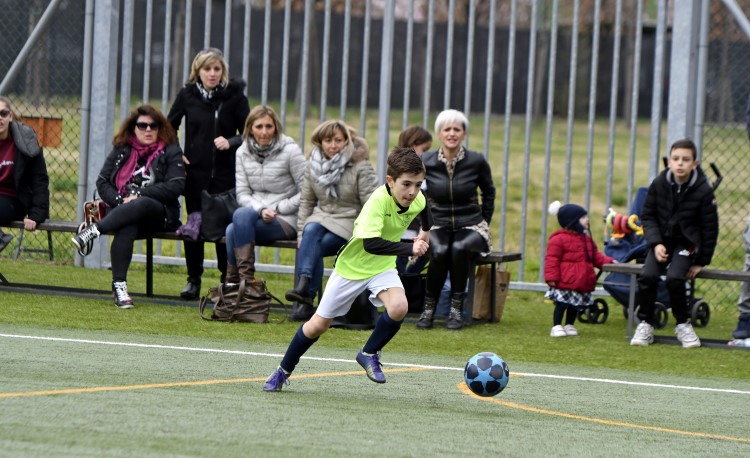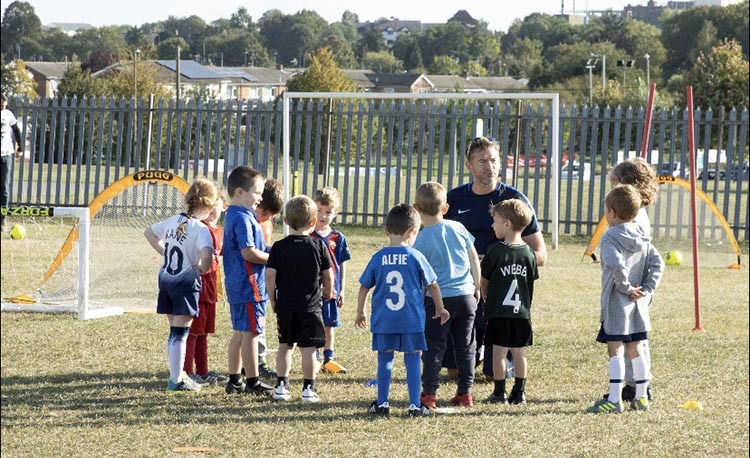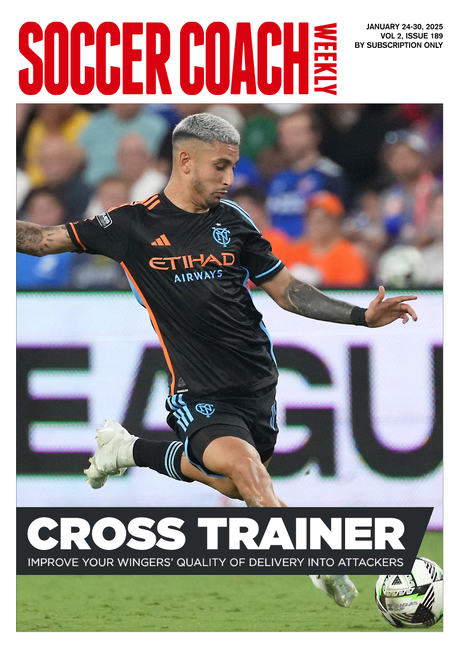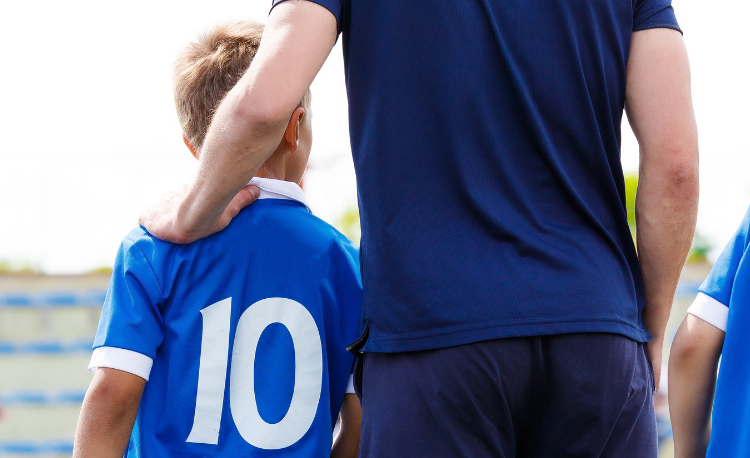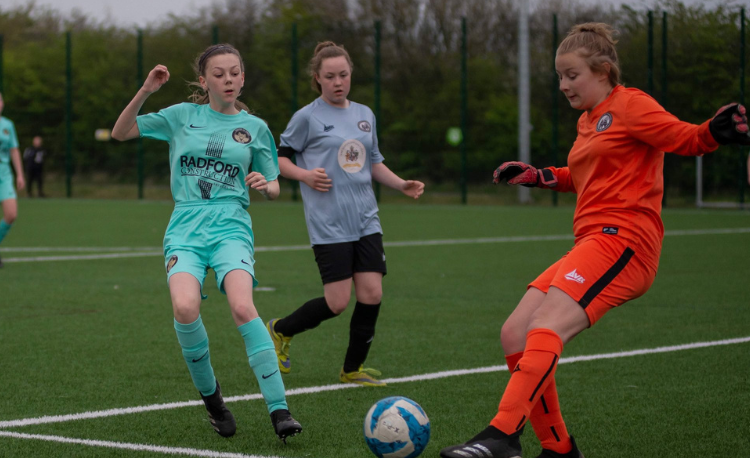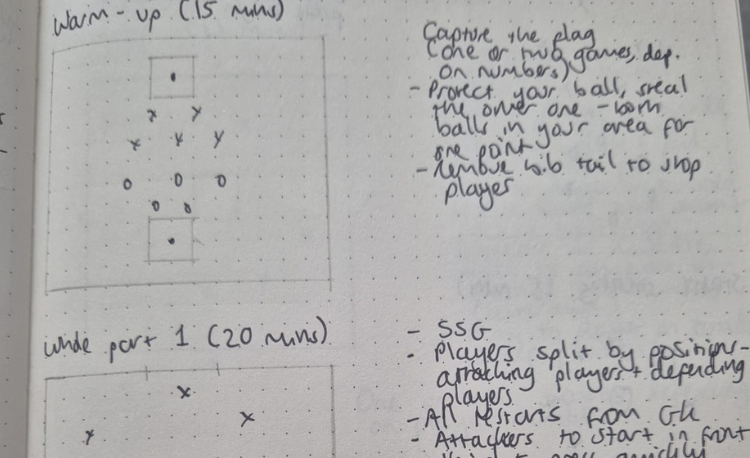Parents: where should they be on matchday?
It’s not just your players you need to manage - it is their families sometimes, too. Steph Fairbairn provides advice on where they should be stationed at games.
If you are coaching a youth team that plays matches, it is likely that many of your players’ parents will want to be cheering their children on from the sidelines.
While this is lovely, and an important part of the matchday experience, it also takes some careful managing.
You want your parents to be present, engaged and encouraging, but not overstepping the mark. Where they are located throughout the event can play a big part in their impact on, and enjoyment of, the match and, most importantly, the players’ experience.
This advice will help you consider where your players’ parents are best placed on matchday.
During arrival and warm up
Best place for the parents: Away from the team.
Depending on the age of your players, it is very possible that their parents will arrive with them, dropping them off.
They might often hang around the area where you are warming up, as that is where their child is.
However, arrival and warm up is a time for players to get ready for the match ahead. That doesn’t just involve stretches, ball work, or games, it is also about everyone saying hello and checking in.
It is important you get a sense of how your players are and they get a chance to settle into being with each other. That is harder for a player to do with their parents around.
When you do get to the physical part of your pre-match routine, you want to be able to set things up and give instruction to your players without feeling like you are being observed or judged.
It is therefore better that parents aren’t around. Unless, of course, you have some parents that help with the warm up.
Top tip: Greet the parents, check in with them, thank them for dropping off their child and then suggest that they either get a coffee or set themselves up ready to watch the game.
During your pre-match team talk
Best place for the parents: Away from the team.
The pre-match team talk is a chance for you to get your players excited for the game ahead and focused on its challenges and possibilities.
While it is natural that a parent might want to be there to listen to what you have to say, ultimately it is not necessary. Them being there may only serve to make you nervous, or may stop their child from expressing themselves in the way they want to.
The team talk is another opportunity for your players to connect and come together as a group - and that is best done without parents around.
Top tip: Give parents insight into the things you will be focusing on during the game, and therefore your team talk, ahead of time.
While the game is being played
Best place for the parents: On the opposite sideline to you, in a clearly marked out area.
Match time will feel like a big deal for lots of players. It can feel overwhelming and nerve-wracking but also exciting and invigorating.
It is, therefore, important that we create the best environment for the players. That means putting ourselves in the best position to provide them with whatever support they may need.
It is likely that parents will want to be on the same side of the pitch as you, so that they can hear what you are saying or watch what you are doing.
Again, this is pressure that you don’t need when you are trying to manage numerous things at once, including the players on the pitch and any subs you may have.
There may also be some parents that encroach on the pitch – most often in a moment of excitement, without even realising. You might even get the odd parent that follows their kid around the pitch, constantly moving in order to keep as close to their child as possible.
While the game is being played, parents should be in as controlled an area as possible, to minimise both distraction for the players and the things you may have to manage.
Use the two sidelines for different purposes – one for coaches, players and equipment and the other for parents.
Mark out an area where you want parents to stand and make sure the area is a suitable distance back from the pitch so no one impedes on throw ins.
Top tip: Make sure you create two areas – one for your parents and one for the opposition’s spectators.
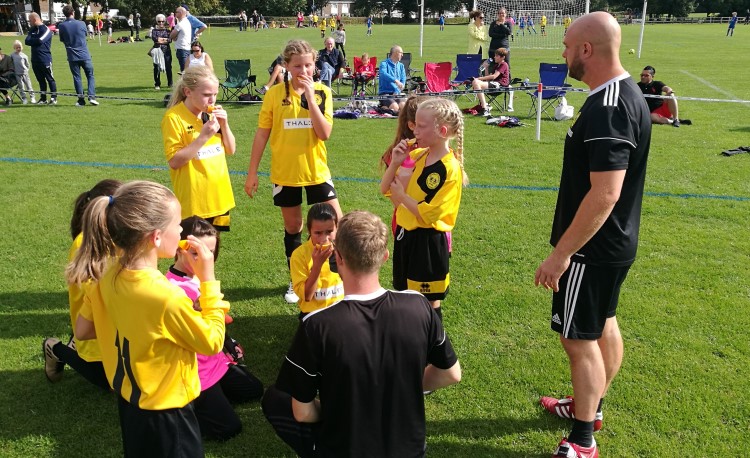
At half time
Best place for the parents: Away from the team.
In a similar vein to the pre-match talk, parents will likely want to hear what you have to say to the players.
At this point, they will also likely have some thoughts on what is going well or what could be done better. They might want to share those thoughts with the group, or with their child individually.
Players should only hear from coaches at half-time, to ensure they are getting a consistent message and aren’t left confused with numerous instructions.
Parents should remain on the other sideline or find another place to be before the second half begins.
Top tip: If parents do come over to listen in on the team talk, try to catch them before they get to the group, so you don’t have to ask them to step back in front of the players.
"Players should only hear from coaches at half-time, to ensure a consistent message..."
After the game
Best place for the parents: It depends!
Win, lose or draw, the end of a game will always have emotions attached to it.
Your job in the post-match talk is to ensure your players go home in the best spirits possible, no matter how the game has gone.
You should be able to do this pretty quickly, with a few congratulatory words and thank yous. Save any other chat about the game for the next training session.
In these instances, it can be nice for the parents to be around. It’s a chance for them to celebrate their children by clapping and cheering. They can also hear the lasting messages you want to leave the players with.
If, however, something happens that means your team talk needs to be a bit longer than usual – perhaps a behavioural issue needs addressing or something that happened during the game needs to be talked about - it is best to keep the parents away.
Top tip: If you are going to allow parents into your end-of-game talk, set expectations about where exactly you want them to be and how you want them to engage.
Exceptions to the rules
Of course, all of the above are suggestions. Sometimes these things won’t be possible, or you might occasionally need exceptions.
Perhaps it is an away game and the host team put parents in a different area – maybe even on the same side as you. Then it is best to defer to the team’s rules. Maybe your league has set rules about where the parents have to be – it is best to check these out.
You might have a player, or some players, who require parental support and, therefore, may need their parents to be closer to them.
Ultimately, wherever parents are on matchday, it is about them having as positive an impact as possible on the players.
Related Files
Newsletter Sign Up
Coaches Testimonials

Gerald Kearney, Downtown Las Vegas Soccer Club

Paul Butler, Florida, USA

Rick Shields, Springboro, USA

Tony Green, Pierrefonds Titans, Quebec, Canada
Subscribe Today
Discover the simple way to become a more effective, more successful soccer coach
In a recent survey 89% of subscribers said Soccer Coach Weekly makes them more confident, 91% said Soccer Coach Weekly makes them a more effective coach and 93% said Soccer Coach Weekly makes them more inspired.
*includes 3 coaching manuals
Get Weekly Inspiration
All the latest techniques and approaches
Soccer Coach Weekly offers proven and easy to use soccer drills, coaching sessions, practice plans, small-sided games, warm-ups, training tips and advice.
We've been at the cutting edge of soccer coaching since we launched in 2007, creating resources for the grassroots youth coach, following best practice from around the world and insights from the professional game.
